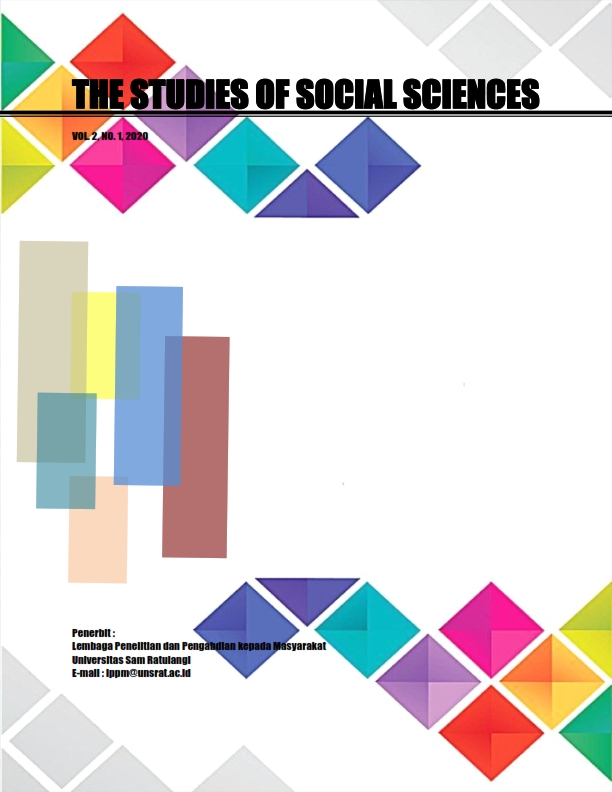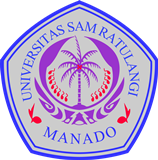Edukasi Pemanfaatan Eco-Enzim Hasil Fermentasi Sampah Organik Rumah Tangga Menjadi Hand-Sanitizer Di Kelurahan Meras Manado
DOI:
https://doi.org/10.35801/tsss.2022.4.1.38901Abstract
This activity aims to enable the community in Meras Bunaken Village, Manado City, who are partners in this project, to provide their own hand sanitizer (HS), and at the same time as an effort to manage their organic waste. To increase the community’s understanding of eco-enzymes, the teams introduced eco-enzyme which is a liquid fermentation of organic garbage and its various benefits. The methods used in this activity are through lectures and discussions, workshop, mentoring and monitoring. The results of these activities showed that there was an increase in knowledge from the community about eco-enzymes. Initially, almost all partner members who participated in the activity did not know what eco-enzymes was and how it was made. After the lectures and workshop, the posttest result showed that there was an increase in the knowledge and skills of partner members regarding the benefit of eco-enzymes and how to make them.
Keywords: Eco-enzymes; hand sanitizer;Â organic garbage
Abstrak
Kegiatan pengabdian ini bertujuan agar kelompok masyarakat di Kelurahan Meras Bunaken Kota Manado yang menjadi mitra kegiatan ini dapat menyediakan hand sanitizer (HS) sendiri, dan sekaligus sebagai upaya pengelolaan sampah organik masyarakat. Untuk meningkatkan pemahaman masyarakat tentang eco-enzim, tim memperkenalkan cairan eco-enzim yang merupakan cairan hasil fermentasi sampah organik dan berbagai manfaatnya. Metode yang digunakan dalam kegiatan ini adalah melalui ceramah dan diskusi, pelatihan, pendampingan dan monitoring. Hasil kegiatan ini menunjukkan terjadi peningkatan pengetahuan dari masyarakat tentang eco-enzim. Awalnya hampir semua anggota mitra yang mengikuti kegiatan tidak mengetahui apa itu eco-enzim dan bagaimana cara pembuatannya. Setelah sosialisasi dan pelatihan, dari hasil posttest menunjukkan bahwa terjadi peningkatan pengetahuan dan keterampilan anggota mitra mengenai manfaat eco-enzim dan cara pembuatannya.
Kata kunci: Eco-enzim; hand sanitizer; sampah organik
References
Desiyanto, F. A., & Djannah, S. N. (2013). Efektivitas Mencuci Tangan Menggunakan Cairan Pembersih Tangan Antiseptik (Hand Sanitizer) Terhadap Jumlah Angka Kuman. Jurnal Kesehatan Masyarakat (Journal of Public Health), 7(2), 75–82. https://doi.org/10.12928/kesmas.v7i2.1041
Handayani, D., Hadi, D. R., Isbaniah, F., Burhan, E., & Agustin, H. (2020). Penyakit Virus Corona 2019. Jurnal Respirologi Indonesia, 40(2), 119–129.
Harahap, R. D. (2016). Pengaruh Sampah Rumah Tangga Terhadap Pelestarian Lingkungan Ditinjau Dari Aspek Biologi Di Komplek Perumahan Graha Pertiwi Kel. Urung Kompas Kec. Rantau Selatan Effect of Household Waste Viewed From the Aspect Environmental Conservation Biology in Housing Complex Graha Pertiwi Kel. Undo Kompas Kec. South Rantau. Cahaya Pendidikan, 2(1), 92–104. https://doi.org/10.33373/chypend.v2i1.609
Larasati, D., Astuti, A. P., & Maharani, E. T. (2020). Uji Organoleptik Produk Eco-Enzyme Dari Limbah. 278–283.
Nazim, F. (2013). Treatment of Synthetic Greywater Using 5% and 10% Garbage Enzyme Solution. Bonfring International Journal of Industrial Engineering and Management Science, 3(4), 111–117. https://doi.org/10.9756/bijiems.4733
Srikartika, P., Suharti, N., & Anas, E. (2016). Kemampuan Daya Hambat Bahan Aktif Beberapa Merek Dagang Hand sanitizer terhadap Pertumbuhan Staphylococcus aureus. Jurnal Kesehatan Andalas, 5(3), 540–545. https://doi.org/10.25077/jka.v5i3.613
Tang, F., & Tong, C. (2011). Garbage-Enzyme-University-Sarawak. 1143–1148.
Downloads
Published
How to Cite
Issue
Section
License
Authors who publish with this journal agree to the following terms:
- Authors retain copyright and grant the journal right of first publication with the work simultaneously licensed under a Creative Commons Attribution License (CC BY-SA 4.0) that allows others to share the work with an acknowledgement of the work's authorship and initial publication in this journal.
- Authors are able to enter into separate, additional contractual arrangements for the non-exclusive distribution of the journal's published version of the work (e.g., post it to an institutional repository or publish it in a book), with an acknowledgement of its initial publication in this journal.
- Manuscripts published in print and electronically are open access for the purposes of education, research, and libraries. Apart from these purposes, the editorial board is not responsible for violations of copyright law.






1.gif)



